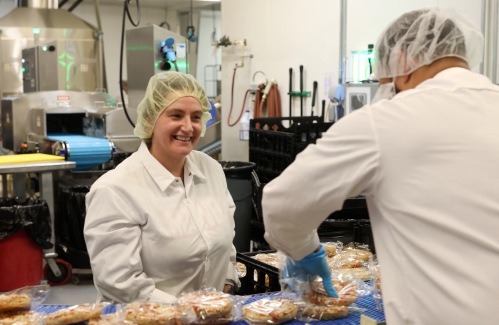
Goodwell Foods takes over Rustic Crust private label frozen pizza
Goodwell Foods, a manufacturer of private label frozen pizza, has found a new home in Pittsfield where Rustic Crust once operated.
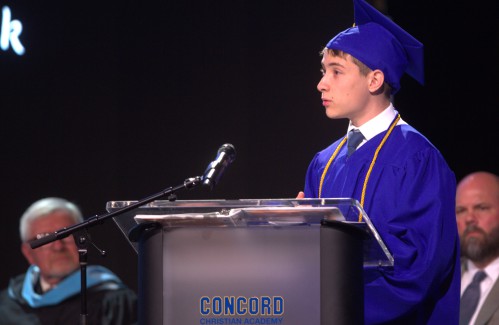
Concord Christian Academy celebrates accomplishment and faith at graduation ceremony
Jamison Banks addressed his class of 32 fellow Concord Christian Academy graduates at One Church in Bedford with a simple phrase his father taught him: “Sometimes a fallen world falls on us.”
Most Read
 New Concord apartments open in former First Congregational Church
New Concord apartments open in former First Congregational Church
 Inside EFAs: How school vouchers have fueled an enrollment boom at Christian schools across New Hampshire
Inside EFAs: How school vouchers have fueled an enrollment boom at Christian schools across New Hampshire
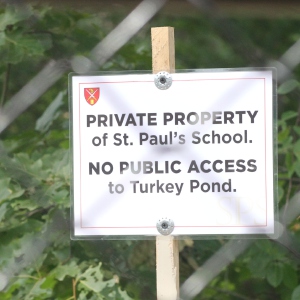 St. Paul’s School won’t reopen public access to Turkey Pond
St. Paul’s School won’t reopen public access to Turkey Pond
 ‘Bittersweet’: The Post on Main Street closes Friday
‘Bittersweet’: The Post on Main Street closes Friday
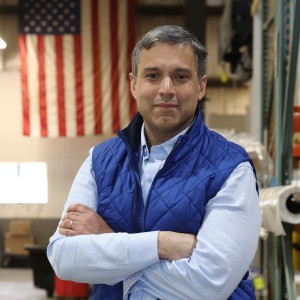 Goodwell Foods takes over Rustic Crust private label frozen pizza
Goodwell Foods takes over Rustic Crust private label frozen pizza
 Messy parking around Concord’s bus terminal won’t get less messy any time soon
Messy parking around Concord’s bus terminal won’t get less messy any time soon
Editors Picks
 The Monitor’s guide to the New Hampshire legislature
The Monitor’s guide to the New Hampshire legislature
 One year after UNH protest, new police body camera footage casts doubt on assault charges against students
One year after UNH protest, new police body camera footage casts doubt on assault charges against students
 ‘It’s always there’: 50 years after Vietnam War’s end, a Concord veteran recalls his work to honor those who fought
‘It’s always there’: 50 years after Vietnam War’s end, a Concord veteran recalls his work to honor those who fought
 ‘We honor your death’ – Arranging services for those who die while homeless in Concord
‘We honor your death’ – Arranging services for those who die while homeless in Concord
Sports
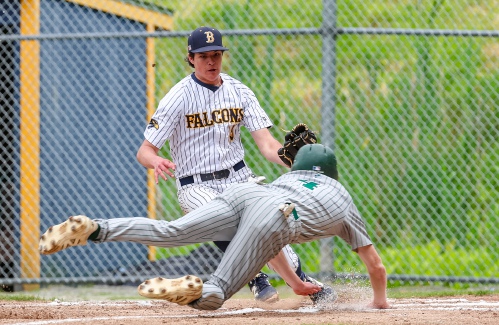
Baseball: Bow secures top-four seed with win over Kingswood
BOW – In a crucial game for playoff seeding, Bow’s senior pitcher Nate Kiah stood strong on the mound and delivered a full game with eight strikeouts to earn the Falcons a 3-1 win over Kingswood.
Opinion

Opinion: Our leaders’ puzzling decision to eliminate the State Council on the Arts
Sal Prizio is the executive director of the Capitol Center for the Arts.
 Opinion: How dark can it get?
Opinion: How dark can it get?
 Opinion: Unfair taxes, unfair schools: The New Hampshire way
Opinion: Unfair taxes, unfair schools: The New Hampshire way
 Opinion: In the fight to stop sexual violence, can polio hold the solutions?
Opinion: In the fight to stop sexual violence, can polio hold the solutions?
 Opinion: Where are the permanent solutions for a more stable budget?
Opinion: Where are the permanent solutions for a more stable budget?

Your Daily Puzzles

An approachable redesign to a classic. Explore our "hints."

A quick daily flip. Finally, someone cracked the code on digital jigsaw puzzles.

Chess but with chaos: Every day is a unique, wacky board.

Word search but as a strategy game. Clearing the board feels really good.

Align the letters in just the right way to spell a word. And then more words.
Politics

New Hampshire school phone ban could be among strictest in the country
When Gov. Kelly Ayotte called on the state legislature to pass a school phone ban in January, the pivotal question wasn’t whether the widely popular policy would pass but how far it would go.
 Sununu decides he won’t run for Senate despite praise from Trump
Sununu decides he won’t run for Senate despite praise from Trump
Arts & Life

Two Villages Art Society begins summer members show
More than 40 New Hampshire artists will display their work in the 2025 Summer Members Show & Sale at Two Villages Art Society’s gallery in the Hopkinton village of Contoocook. The show opens May 31, with a reception from noon to 2 p.m. and runs through June 28.
 Artist Spotlight: Brittany Batchelder
Artist Spotlight: Brittany Batchelder
Obituaries
 Alexander William Saltmarsh
Alexander William Saltmarsh
Bow, NH - It is with profound sadness that we announce the passing of Alexander William Saltmarsh, a lifelong resident of Bow, New Hampshire, who died peacefully at the family home on May 19, 2025, at the age of 79. Born on January 31, ... remainder of obit for Alexander William Saltmarsh
 Beatrice Kapreilian
Beatrice Kapreilian
Beatrice "Bea" Kapreilian Sarasota, FL - KAPREILIAN, Beatrice "Bea" Age 88, of Sarasota, FL and Falmouth, MA, died peacefully in her sleep with her family and all of her grandchildren sharing their love, on Wednesday, May 14, 2025. She w... remainder of obit for Beatrice Kapreilian
 Annette L. Wolfe
Annette L. Wolfe
Concord, NH - ANNETTE L WOLFE, 88, passed away on Friday May 9th 2025 at Presidential Oaks in Concord, NH with her loving children by her side. She was born in Presque Isle, Maine, the daughter of the late Paul Lamoreau and Ruth (Hasey)... remainder of obit for Annette L. Wolfe
 Alexander William Saltmarsh
Alexander William Saltmarsh
Bow, NH - It is with profound sadness that we announce the passing of Alexander William Saltmarsh, a lifelong resident of Bow, New Hampshire, who died peacefully at the family home on May 19, 2025, at the age of 79. Born on January 31, ... remainder of obit for Alexander William Saltmarsh


 Bow offers water to Hooksett plant, asks Concord to help fix its supply
Bow offers water to Hooksett plant, asks Concord to help fix its supply
 Hyper-local, good-news-only paper in Andover is closing
Hyper-local, good-news-only paper in Andover is closing
 High schools: Final results from the regular season, tennis tourney action
High schools: Final results from the regular season, tennis tourney action
 Track & field: Goulas wins all 3 jumping events, Saysaw sets two records to lead Concord girls to first D-I title since 1988
Track & field: Goulas wins all 3 jumping events, Saysaw sets two records to lead Concord girls to first D-I title since 1988
 Vintage Views: The Liars Club
Vintage Views: The Liars Club
 Students address worldwide problems through Community Changemaker Challenge
Students address worldwide problems through Community Changemaker Challenge
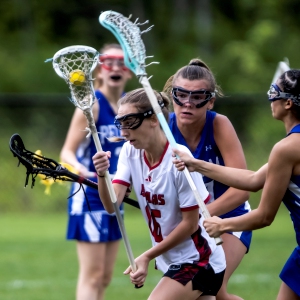 Girls’ lacrosse: Coe-Brown secures playoff spot with 12-10 win over Pelham
Girls’ lacrosse: Coe-Brown secures playoff spot with 12-10 win over Pelham
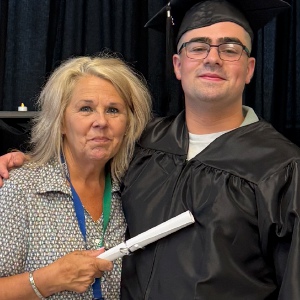 ‘It’s the first thing I’ve ever accomplished’: Graduates celebrate completing Second Start’s Adult Diploma Program
‘It’s the first thing I’ve ever accomplished’: Graduates celebrate completing Second Start’s Adult Diploma Program
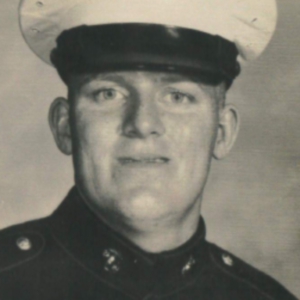 ‘He died for his country’: Pittsfield honors U.S. Marine who lost his life in Vietnam War
‘He died for his country’: Pittsfield honors U.S. Marine who lost his life in Vietnam War

 High schools: Concord boys’ lax secures tourney spot with victory, Kearsarge and Brady tennis advance to semis, more results from Thursday
High schools: Concord boys’ lax secures tourney spot with victory, Kearsarge and Brady tennis advance to semis, more results from Thursday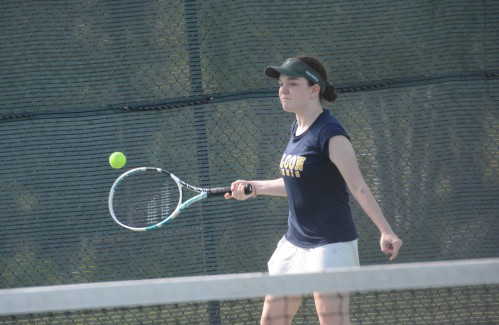 High schools: Bow girls’ tennis advances in tourney, Stark baseball beats MV, Kearsarge softball wins first games of the season; Wednesday’s results
High schools: Bow girls’ tennis advances in tourney, Stark baseball beats MV, Kearsarge softball wins first games of the season; Wednesday’s results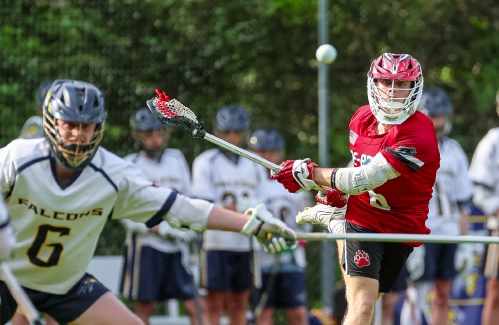 Boys’ Lacrosse: Bean reaches milestone in Coe-Brown win over Bow in heavy hitters matchup, 13-3
Boys’ Lacrosse: Bean reaches milestone in Coe-Brown win over Bow in heavy hitters matchup, 13-3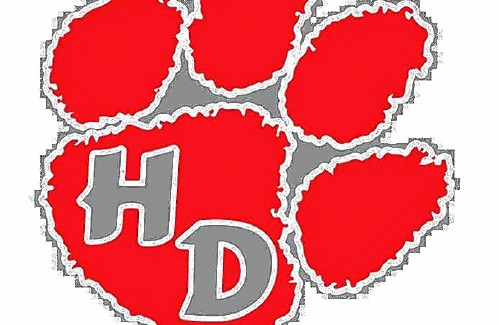 High schools: Hillsboro-Deering sweeps Hopkinton; Tuesday’s baseball, softball, lacrosse and tournament tennis
High schools: Hillsboro-Deering sweeps Hopkinton; Tuesday’s baseball, softball, lacrosse and tournament tennis Concord became a Housing Champion. Now, state lawmakers could eliminate the funding.
Concord became a Housing Champion. Now, state lawmakers could eliminate the funding. ‘A wild accusation’: House votes to nix Child Advocate after Rep. suggests legislative interference
‘A wild accusation’: House votes to nix Child Advocate after Rep. suggests legislative interference  Town elections offer preview of citizenship voting rules being considered nationwide
Town elections offer preview of citizenship voting rules being considered nationwide Young Professional of the Month Katie Duncan shares about creativity, community, connection
Young Professional of the Month Katie Duncan shares about creativity, community, connection Tiny Tapestry sale at Red River Theaters raising money for Concord Coalition to End Homelessness
Tiny Tapestry sale at Red River Theaters raising money for Concord Coalition to End Homelessness Bowling for a cause: Angelman Syndrome Fundraiser coming to Boutwell’s
Bowling for a cause: Angelman Syndrome Fundraiser coming to Boutwell’s
